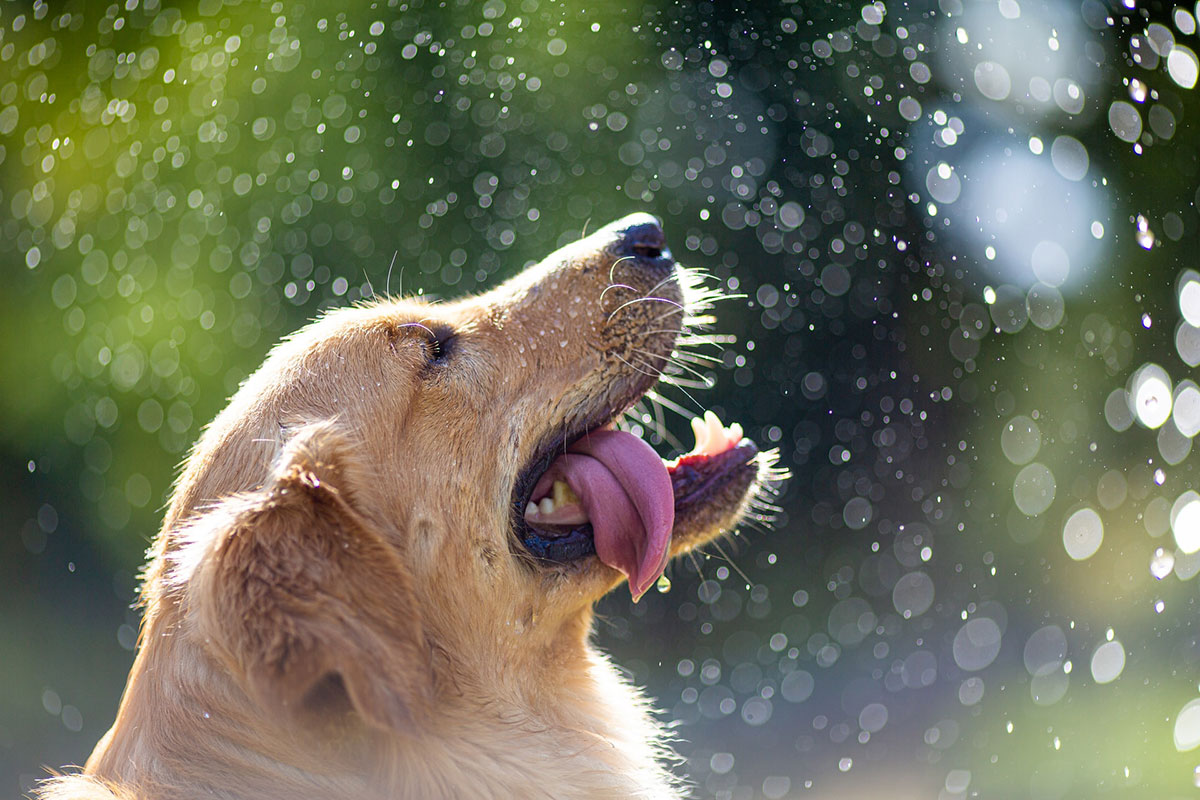Cherished for their energetic nature and intelligence, Border Collies excel in a variety of roles, from farm and herding duties to being adored family members. Yet, their propensity for vocal expression can sometimes lead to excessive and unnecessary barking, challenging the patience of their owners.
If you’re seeking training tips for Border Collie barking, you’re not alone. The key to border collie barking solutions lies in understanding the breed’s behaviors, employing consistent training techniques, and leveraging your collie’s intelligence in a positive way.
In the journey to learn how to stop Border Collie barking, patience and perseverance are your most important tools. It starts with delineating appropriate times for vocalization, such as in warning situations, while discouraging needless noise. Having a collie who knows when to raise their voice, and more importantly, when to be silent, enhances harmony at home. By heeding detailed training methods and reinforcing success, it won’t be long before peaceful quiet replaces persistent barks.
Before we delve into the array of strategies and the profound role of patience in stopping unwanted barking, let us remind ourselves that a well-trained collie is a happy collie. By setting clear boundaries and offering our four-legged friends the guidance they need, we support their well-being and foster a tranquil home environment.
Key Takeaways
- Understanding the reasons behind Border Collie barking is the first step to effective training.
- Teaching basic commands lays the groundwork for addressing problematic barking behaviors.
- Patience and persistence are indispensable in curbing unnecessary vocalizations.
- Border Collies respond well to a consistent approach and clear communication from their owners.
- Positive reinforcement is a powerful tool in managing and reducing excessive barking.
- Creating a quiet and supportive environment can help minimize stress-induced barking.
- Additional tips and advise available with our 100+ ideas on how to reduce dog barking article.
Understanding Your Border Collie’s Barking Habits
If your peaceful home has turned into a symphony of canine vocalizations, it’s crucial to understand why your Border Collie barks. Embodying profound intelligence, these dogs can be your greatest partner in serenity, but it requires discernment to distinguish between their communication and nuisance barking.
Effective methods to control Border Collie barking tap into the breed’s cleverness, while tackling their stubborn streak. Preventing annoying barking in Border Collies starts with recognizing their needs and training them to express themselves in more appropriate ways.

The Intelligence and Stubbornness of Collies
Renowned for their sharp minds, Border Collies often learn rapidly, which is why they excel in obedience and agility. Yet, with great intelligence comes a determination that can manifest as stubbornness during training. Overcoming this challenge lies not in demanding submission, but in guiding your clever companion to understand and adhere to household expectations, serving as a cooperative partner in the quest to silence unnecessary barking.
Distinguishing Between Necessary and Unnecessary Barking
While some barking is warranted, it’s the relentless sound without a clear cause that often requires intervention. Necessary barking signals important events, like a stranger at your door, but when a leaf blowing across your lawn elicits the same response, it’s clear that boundaries need to be established. Discerning one from the other is the linchpin in training your dog when it’s acceptable to bark and when it’s time for quiet.
Establishing Your Role in Training
To embark on this training voyage successfully, it’s essential to assert your position as the respected leader who sets the rules. This begins with your Border Collie mastering commands like “come,” “sit,” “stay,” and “down.” This foundation heralds clarity in communication between you and your furry compatriot, reigning in their barking habits and promoting a relationship based on mutual respect and understanding.
“Consistency is key – without consistent response and clear communication, training any aspect of your Border Collie’s behavior can be rendered ineffective.”
With these elements combined, you are well-armed to employ effective, strategic training. Let’s explore the approaches that will enable you and your Border Collie to enjoy a quieter, happy home life.
Pre-Training Essentials for Your Collie
Starting the journey towards silence with your Border Collie involves more than just targeted border collie barking remedies. It begins with laying the groundwork for obedience and mutual understanding. Acknowledged for their intelligence, Border Collies are capable of learning basic commands quickly, creating a channel for clear communication between you and your furry companion. This crucial training stage sets the stage for future success in managing barking behavior efficiently.

Mastering Basic Commands
As part of the preparation for barking solutions, mastering basic commands such as ‘come’, ‘sit’, ‘stay’, and ‘down’ is indispensable. These commands form the foundational language through which you’ll guide your collie’s behaviors. Integrating these commands into daily routines not only reinforces their knowledge but also establishes you as the pack leader, an important aspect when you need your collie to pay attention and follow your lead without hesitation.
Tools and Patience: Preparing for Barking Solutions
When it comes to the appropriate tips to silence your border collie’s barking, the key tools are simplicity and patience. Setting up for training requires minimal accessories — your time, patience, and a selection of treats that your collie is especially fond of. These tools are not just material but also emotional, reflecting the dedication you’re ready to commit to achieving a quiet and well-behaved companion. Approach each training session with calm assertiveness, emphasizing your role as a consistent leader and reinforcing the desired behaviors with a patient demeanor.
Before diving into the advanced techniques for controlling the bark of your Border Collie, ensure these foundational elements are integrated into your daily routine. Clear understanding and execution of basic commands, paired with the right approach, will significantly impact the effectiveness of any advanced border collie barking remedies you implement in the future stages of training.
Identifying and Managing Barking Triggers
Effective training tips for border collie barking start with a quintessential step: understanding what prompts your collie to vocalize. Is it a knock at the door, the sight of another dog, or simply out of boredom? Identifying these triggers is not just about noting the occurrences, it’s about deeply analyzing your collie’s environment and daily routine to pinpoint patterns and causes of their barking. By doing so, we pave the way for tailored techniques to curb border collie barking that cater to your pet’s specific needs.

Once you have established the causes behind the barking, you can flesh out a management plan. This might involve creating diversion tactics for attention-seeking barks or providing toys for mastification which can reduce boredom-induced barking. Exposure to triggers, such as squirrels in the backyard or delivery drivers arriving at the doorstep, can then be managed in a controlled fashion.
“Understanding your Border Collie’s unique barking triggers is like acquiring a key to unlock peace and quiet within your home.”
Let’s categorize some common barking triggers and explore how to manage them:
| Trigger Category | Typical Triggers | Management Techniques |
|---|---|---|
| Boredom | Lack of physical activity, no interactive toys | Provide stimulation through toys and regular exercise. |
| Anxiety | Separation, loud noises | Recognize early signs, introduce calming practices. |
| Territorial | Strangers approaching, unfamiliar animals | Control exposure, apply obedience training. |
| Attention-Seeking | Desire for interaction, unfamiliarity with solitude | Teach independence, don’t reward barking for attention. |
In summary, turning your Border Collie’s instinct to bark from a nuisance into an appropriate behavioral response is a journey that begins with awareness. Mastering the techniques to curb border collie barking rests on your ability to discern, deconstruct, and directly address the underlying factors of their barking. With vigilant observation and targeted management, a serene environment is well within reach.
Desensitization: Easing Your Collie’s Reactive Barking
Desensitization is a renowned therapeutic technique, recognized as one of the most effective methods to control border collie barking. It’s a step-by-step process which aims to diminish your pet’s reactive responses by cautiously exposing them to their usual barking triggers. As you embark on this journey, it’s essential to appreciate the benefits and challenges that come with this approach, gently guiding your Border Collie towards a more serene demeanor.
Understanding the Process of Desensitization
The effectiveness of desensitization lies in its gradual approach. This time-tested method serves as one of the solutions for managing border collie barking, helping to accustom your dog to its barking triggers without overwhelming them. By incrementally introducing your Collie to the sights, sounds, or situations that typically solicit barking, they’ll learn to remain calm and collected in the face of what once provoked a noisy outburst.
Gradual Exposure to Barking Triggers
Progress is measured not by leaps, but by steps. Your Border Collie’s exposure to triggers should be a slow and controlled process, always adhering to your pet’s comfort levels. Starting at a distance that does not evoke barking, you can gently decrease the space between your dog and the trigger over time. The allure of this method is its gentle pace, allowing your Collie to become progressively more familiar—and ultimately indifferent—to what once caused a reactionary bark fest.
As you desensitize your Collie, remember that patience is not merely a virtue; it is a vital ingredient in transforming your canine companion’s behavior for the better.
Combining desensitization with consistent positive reinforcement can enhance the process significantly. For instance, when your Collie remains calm in a situation that would typically cause barking, a reward is in order! This not only celebrates their progress but also instills a positive association with previously triggering events. It’s a reinforcing loop of behavior modification that tilts the scales from noise to tranquility.
With dedication to the desensitization method, you’re setting your Border Collie on a path to less reactive barking, ensuring a quieter household and a happier, less stressed canine companion. Below is a summarized table that outlines the stages of desensitization for your reference:
| Desensitization Phase | Actions | Expected Outcome |
|---|---|---|
| Initial Exposure | Introduce trigger from a non-reactive distance. | Dog notices trigger without barking. |
| Increased Proximity | Gradually decrease the distance between dog and trigger. | Dog remains calm as trigger approaches. |
| Reinforcement | Reward calm behavior with treats/praise. | Dog associates trigger with positive experiences. |
| Consolidation | Repetitive practice and positive reinforcement. | Dog no longer reacts with barking to the trigger. |

Positive Reinforcement: The Key to Training Your Collie
In the realm of border collie barking solutions, positive reinforcement stands unrivaled as a transformative force in behavior modification. Cultivating quietude within a Border Collie hinges not on diminution through punishment, but on amplifying the positives—celebrating the silence. A treat dispensed for tranquility, a caress in response to calmness; these tips to silence your border collie’s barking are premised on the power of praise.
Rewards, both edible and emotional, woven into moments of hushed behavior, conjure a connection between quietude and pleasure in your collie’s psyche. In the structured assemblage of training tactics, fostering this association is paramount. Acknowledge those golden moments of serenity with an affectionate pat or a delectable morsel, and observe the tapestry of silence you can craft, thread by positive thread.
Remember, border collies don’t just bark to speak, but also to sing their needs and fears. It is our job to listen closely, reward silence, and guide them towards finding their voice in more harmonious ways.
Yet, how does one chart the progress of silence? How do you measure the whispers of a success hummed softly through the days? Let us elucidate with a table:
| Behavior | Reward | Outcome |
|---|---|---|
| Border Collie sits quietly by the door | Treat and verbal praise | Teaches patience and restraint |
| Collie chooses not to bark at the mailman | Favorite toy or play session | Dissociates the mailman with the need to vocalize |
| Collie remains calm during a thunderstorm | Snuggles and calming petting | Reduces anxiety-associated barking |
Above all, within the frame of tips to silence your border collie’s barking, the crescendo of your efforts must be consistent and persistent reinforcement of desired behaviors. Let each success ring clearly, and may your path to training be guided by the compass of positive incentives.

How to Stop Border Collie Barking with the ‘Quiet’ Command
Excessive barking in Border Collies can disrupt daily life and peace at home, but it can be addressed efficiently with effective training tips. One of the most instrumental techniques is teaching the ‘Quiet’ command, a cornerstone practice in border collie barking remedies. It’s not only about curbing the noise but also fostering better communication between you and your loyal companion. Let’s delve into how incorporating this command can guide your Border Collie towards quieter behavior.
Introducing the ‘Quiet’ Command
Initiating the ‘Quiet’ command with your Border Collie begins with choosing moments when your dog is likely to bark. As the barking commences, you say “Quiet” in a composed yet firm voice. Your demeanor and tone are essential here; they should communicate authority without causing stress or fear. As your Border Collie pauses to process the command, you’re already on the path to stop excessive barking in border collies.
Effective Timing of Rewarding Silence
The pivotal moment in training comes immediately after your collie heeds the ‘Quiet’ command. The second they cease barking, it’s imperative to follow with instant praise or a treat. This exactness in timing is paramount to success, as it helps your dog associate the cessation of barking with positive outcomes. Maintaining consistency in this practice reinforces the training, gradually transforming your Border Collie’s reaction to situations that typically incite barking.
Consistency in timing and reward is crucial for your Border Collie to establish the connection between quiet behavior and positive reinforcement.
Let’s illustrate the ‘Quiet’ command in action with a practical example:
| Situation | Action | Reward/Response |
|---|---|---|
| Border Collie starts barking at a squirrel. | Issue the ‘Quiet’ command in a firm, calm voice. | Once barking stops, immediately provide praise or a treat. |
| Border Collie barks when the doorbell rings. | Again, firmly say “Quiet” once the barking starts. | Follow with a treat or affection to reinforce silence as the door is answered. |
| Collie barks during a play session with other dogs. | Command ‘Quiet’ to calm the excitement and barking. | Reward the collie’s calm behavior with more play, ensuring it’s a controlled environment. |

Adopting the ‘Quiet’ command into your training tips for border collie barking equips you with a valuable tool to guide your collie towards more desirable behavior. Through repetition, patience, and proper timing of rewards, your dog will learn to find their silence, ensuring a more peaceful environment for both you and your intelligent companion.
Strategies for Redirecting Excessive Barking
Addressing the challenge of excessive barking in Border Collies often requires more than traditional training methods. Redirecting their energy and focus towards productive activities has proven to be one of the most reliable solutions for managing border collie barking. By introducing constructive alternatives, you can engage your collie’s attention away from the stimuli that prompt their barking, teaching them more acceptable ways to communicate and interact within their environment.

A common instance where redirection is particularly effective is during periods of heightened excitement or anxiety. When visitors come to the doorstep or a squirrel darts across the yard, offering a toy or initiating a game can successfully shift the collie’s focus. This table illustrates various redirection methods which can serve as border collie barking remedies:
| Barking Scenario | Redirection Strategy | Benefit |
|---|---|---|
| Barking at visitors | Initiate a fetch game with their favorite toy | Distraction from visitors, energy expenditure |
| Reactive barking at other animals | Engage in a training session using commands | Focuses attention on owner and reinforces commands |
| Barking due to boredom | Provide puzzle toys with hidden treats | Offers mental stimulation and a rewarding activity |
| Barking for attention | Direct to a quiet-time mat or bed | Teaches self-soothing and independence |
Remember, consistency is essential when implementing these strategies. Your Border Collie should come to understand that quiet and calm behavior is the norm and that the redirection activities are fun, positive experiences rather than consequences. Over time, incorporating these border collie barking remedies into your training routine will minimize unwanted barking and promote a harmonious relationship between you and your collie.
Redirection is not just a training technique; it’s a way to tap into your Border Collie’s inherent intelligence and to channel their energy into behaviors that are beneficial for both the dog and owner.
Exercise: A Solution for Excess Energy and Barking
When considering how to stop border collie barking, the role of exercise cannot be overstated. A fundamental aspect of a Border Collie’s well-being, exercise serves to expel excess energy that might otherwise manifest as incessant barking. Physical activity goes hand in hand with mental engagement to form a balanced approach, addressing both the body’s need for movement and the mind’s need for stimulation. By implementing training tips for border collie barking that include a vigorous exercise routine and engaging mental challenges, owners can promote a more serene and content pet.

Physical Activities to Minimize Barking
Physical activities constitute more than just a way to keep your Border Collie fit; they are pivotal in reducing undue barking. An active dog is a quiet dog, and incorporating regular, structured exercises into your dog’s day can mitigate the barking issues related to high energy levels. Whether through long walks, frisbee sessions, or agility training, physical exertion helps to drain the bubbling energy of these vivacious canines. Below is an outline of activities that can complement your efforts in barking management:
- Leashed walks or jogs in various settings for environmental enrichment.
- Fetch games in the park to improve their sprinting and bring out their herding instincts.
- Agility courses to engage their natural agility and intelligence.
- Herding activities to provide a meaningful and tiring job that’s true to their breed.
Mental Stimulation to Prevent Boredom-Induced Barking
Equally important in managing a Border Collie’s propensity for barking is mental stimulation. Boredom can lead to a noisy and unhappy dog, which is why investing in interactive toys and games is so crucial. Puzzle feeders, hide-and-seek activities, and consistent training exercises all serve to keep a Border Collie’s mind active and engaged. Offering these types of stimuli at regular intervals can help alleviate boredom that often triggers unwanted vocalization.
| Mental Stimulation Activity | Benefits |
|---|---|
| Interactive Puzzle Toys | Encourages problem-solving and focus |
| Training Sessions | Reinforces obedience and provides mental challenges |
| Scent Work Games | Utilizes their natural scent tracking abilities for mental stimulation |
| Obedience Classes | Offers a structured setting for learning and socialization |
By balancing vigorous physical exercise with rewarding mental activities, you can provide your Border Collie with a comprehensive approach to minimizing barking brought on by excess energy and ennui. Consequently, these activities not only increase your collie’s overall happiness but also contribute to a more peaceful and harmonious living environment.
Creating a Supportive Environment for a Quiet Collie
The quest for preventing annoying barking in border collies often extends beyond the realm of active training and into the very ambience of their living space. To promote a calm and quiet atmosphere conducive to our goal, subtle yet effective changes in the environment can be a significant factor in your border collie barking solutions. Ensuring your collie’s surroundings are harmonious and secure can drastically minimize incidences of reactive barking and stress.
Imagine stepping into a haven that instantly washes away the day’s stress—a sanctuary where your Border Collie can retreat into tranquility. This vision can be materialized within your home by introducing elements that cater to your collie’s comfort and peace of mind. Below are key aspects to consider when creating such a supportive environment:
By cultivating a serene environment, you lay the foundation upon which lasting behavioral changes can be built, turning your home into a bastion of peace for both you and your collie.
- Designate a special spot for your Border Collie, complete with a cozy bed and cherished toys, imbuing them with a sense of security and personal space.
- Incorporate calming scents like lavender or chamomile, which have been known to have a relaxing effect on dogs, similar to their influence on humans.
- Play soothing sounds or soft classical music to dampen external noises that may trigger barking, thus creating a buffer against the outside world.
- Establish a consistent routine that includes playtime, rest, and meals, fostering predictability and stability in your collie’s daily life.
Each of these components works synergistically to establish a space where your Border Collie can feel at ease. This proactive approach addresses the root causes of anxiety-induced barking, offering a holistic solution to the challenge of excessive noise.
| Environmental Element | Purpose | Effect on Barking |
|---|---|---|
| Comfortable Bedding | Provide a secure place for rest | Reduces stress-related barking |
| Calming Scents | Alleviate anxiety and tension | Decreases likelihood of anxious barking |
| Soothing Sounds | Mask external trigger noises | Lessens reactivity to noises |
| Consistent Routine | Build a predictable environment | Minimizes barking due to confusion or uncertainty |
With attention to these environmental details, you can make significant strides in preventing annoying barking in border collies. It’s about more than just silence; it’s about fostering a sense of well-being for your Border Collie, allowing their natural inclination for quiet to emerge effortlessly.

Essential Techniques to Curb Border Collie Barking
In the quest to find solutions for managing border collie barking, it’s necessary to integrate a variety of techniques capable of addressing this common behavioral issue. From redirection tactics to environmental adjustments, employing the right strategies can make all the difference. Below we’ll discuss the benefits of the distraction and water spray technique and how controlling your pet’s environment can significantly reduce barking stimuli.
Distraction and Water Spray Technique
When a Border Collie’s attention is captivated by something that leads to reactive barking, a firm ‘quiet’ command, paired with a distraction or a harmless water spray, can help redirect their focus. The surprise and interruption provided by the spray can be enough to cease their barking, allowing a swift transition to a more desirable behavior. Once the barking stops, it’s paramount to reward your dog with positive reinforcement.
| Technique | Action | Result |
|---|---|---|
| Distraction | Issue a firm ‘quiet’ command and redirect the dog’s focus with a toy or activity. | Dog associates the command with ceasing to bark and engaging in another behavior. |
| Water Spray | Gently spray your Border Collie with a bit of water as a distraction when they bark excessively. | The gentle surprise redirects the dog’s attention and helps them associate barking with the interruption. |
Controlling the Environment and Reducing Barking Stimuli
Minimizing exposure to common barking triggers plays an essential role in effective methods to control border collie barking. This can be achieved by controlling your dog’s environment. For instance, using visual barriers like window films to prevent your collie from seeing outside, or setting up a comfortable area where your collie can feel secure and relaxed away from stressors, can greatly aid in reducing unnecessary barking. Simple modifications like these can lead to significant changes in your Border Collie’s vocal behavior.
| Environmental Control | Implementation | Impact on Barking |
|---|---|---|
| Visual Barriers | Install window films or strategic fencing to limit your dog’s view of external stimuli. | Reduces reactive barking to passersby or animals outside. |
| Comfort Area | Create a designated space with comfortable bedding and favorite toys. | Provides a safe retreat, minimizing stress-induced barking. |
| Access Limitation | Employ baby gates to restrict access to areas where barking triggers are prevalent. | Lessens opportunities for your Border Collie to encounter barking stimuli. |
Combining effective training techniques with a controlled environment creates a multifaceted approach to solutions for managing border collie barking. By integrating these strategies, you will notice a decrease in unwanted barking and an increase in peaceful moments with your canine companion.
Consistency: The Cornerstone of Border Collie Barking Remedies
When seeking to stop excessive barking in border collies, maintaining a steady, unswerving course is pivotal. A consistent approach assures that your furry friend receives the same message at all times, which is essential for the effectiveness of any border collie barking remedies. This steadiness in training aids in mitigating confusion and assures that your collie can focus on the lesson at hand – achieving a quieter, more harmonious living space.
Avoiding Mixed Signals in Training
Inconsistency is the arch-nemesis of effective dog training. Sending mixed signals, such as comforting your collie when it barks for no reason, then scolding for similar barking moments later, only perpetuates the behavior you wish to eliminate. To truly stop excessive barking in border collies, every family member must uphold a united front, providing the same responses to barking incidents, thus offering no room for misinterpretations from your intelligent canine.
Uniform Expectations for Best Results
From mealtime to playtime and everything in between, consistency forms the framework for successful behavior modification. If you seek to discourage barking for attention, then never reward such behavior – not even once. This unwavering uniformity in expectations is key to the Border Collie’s ability to understand and integrate the principles you’re teaching, eventually leading to the best results in quieting unwelcome barking.
| Consistent Action | Collie’s Understanding | Result |
|---|---|---|
| Not comforting when barking unnecessarily | Barking garners no benefit | Reduction in attention-seeking barking |
| Avoiding feeding from the table | Mealtime begging is futile | Eliminates begging behavior |
| Using firm ‘quiet’ cue with immediate reward for compliance | Quiet behavior equals positive outcomes | Increases compliance with ‘quiet’ command |
| Redirection to a task or toy when barking impulsively | Alternative actions are more rewarding | Transforms response to potential barking triggers |
Conclusion
In the journey towards achieving silence with your Border Collie, we’ve navigated through the multifaceted terrain of dog training strategies. This article has illuminated how to stop border collie barking by adopting various methods to control border collie barking and emphasized the cornerstone of successful training: the synchronized use of these techniques. Whether it’s the critical identification of barking triggers, the nurturing process of desensitization, or the commanding effect of the ‘quiet’ cue, each method carries its weight in aiding collie owners towards their goal of peace.
Ensuring regular exercise and cognitive challenges play a substantial role, affecting both the physical vitality and mental acuity of your collie. A supportive environment, one that resonates with calm and security, is essential in mitigating stress-induced vocalization, further contributing to a serene household. However, none of these strategies stands alone. The blending of positive reinforcement, keen observation, and the ‘quiet’ command hinges on consistent application—consistency that must be as unwavering as a Collie’s spirit.
The dogged determination of owners, paired with patience, molds the essence of effective training and paves the way to transformative outcomes. It is this very ethos of perseverance and consistency that will cement a harmonious relationship between owner and collie, ensuring barking is curbed and quietude prevails in the home. Discipline aligned with understanding and compassion will thus herald the desired tranquility, fostering a relationship where both owner and Border Collie can thrive in contented companionship.
FAQ
What are the first steps to stop my Border Collie from barking excessively?
Begin with understanding the triggers that cause your Border Collie to bark. Be sure to master basic commands as these will help establish your authority and provide a foundation for further training. Additionally, utilize tools like treats and toys along with patience as you prepare to implement barking solutions.
Can I train my Border Collie to differentiate between necessary and unnecessary barking?
Yes, by establishing clear communication and consistent training, you can teach your Border Collie to discern when barking is appropriate and when it is not. Recognizing and rewarding quiet behavior will reinforce this lesson over time.
How does my Border Collie’s intelligence affect barking training?
Border Collies are highly intelligent, which means they learn quickly but can also be stubborn. This intelligence requires that you be consistent and creative in your training approach to effectively control barking habits.
What is desensitization and how can it help my Border Collie’s barking?
Desensitization is a technique where your Collie is gradually exposed to the stimuli that trigger barking, in a controlled way, to reduce reactivity. This process, combined with rewards for calm behavior, can help decrease unnecessary barking.
Why is positive reinforcement important for controlling my Border Collie’s barking?
Positive reinforcement is key because it rewards your Border Collie for silence rather than barking, encouraging them to repeat the desired quiet behavior. This method taps into your Collie’s natural desire to please you for rewards.
What are some effective ways to redirect my Border Collie’s focus to stop barking?
Redirect your Collie’s attention to another activity, like a training exercise or a play session. Offer a favorite toy or engage in an activity they enjoy to divert their focus away from the barking trigger.
How does physical exercise and mental stimulation help reduce my Border Collie’s barking?
Engaging your Collie in adequate physical exercise and mental games helps drain excess energy and prevents boredom. This combination is essential in minimizing the propensity for nuisance barking. A well-exercised and mentally stimulated Collie is typically calmer and quieter.
Can creating a specific type of environment at home help control my Border Collie’s barking?
Yes, setting up a supportive and serene environment can reduce anxiety and promote relaxation for your Collie, which in turn can minimize reactive barking. Consider using calming scents, soothing sounds, and a comfortable resting place.
What are some techniques to immediately curb my Border Collie’s barking when it occurs?
Techniques such as using a firm ‘quiet’ command, distracting them with a toy, or even a gentle water spray can be effective when used correctly. You can also manage the dog’s environment to limit exposure to known barking triggers.
How important is consistency in Border Collie barking training?
Consistency is absolutely vital. Your Border Collie needs to receive consistent messages and consequences for their behavior. This means adhering to the same rules and routines to avoid confusion and reinforce the training for quiet behavior.






